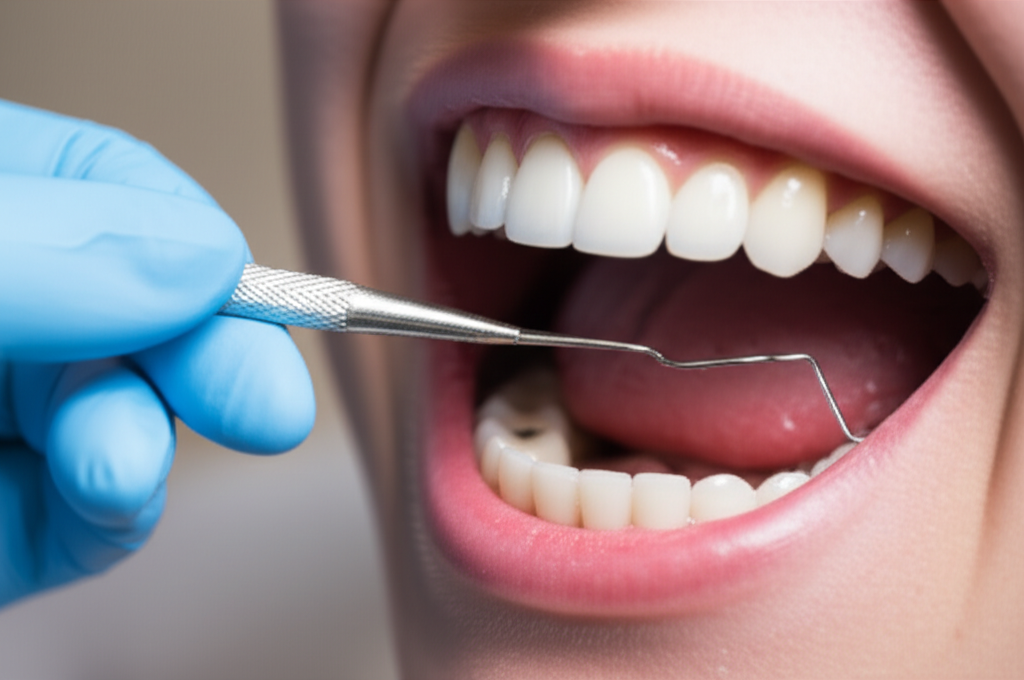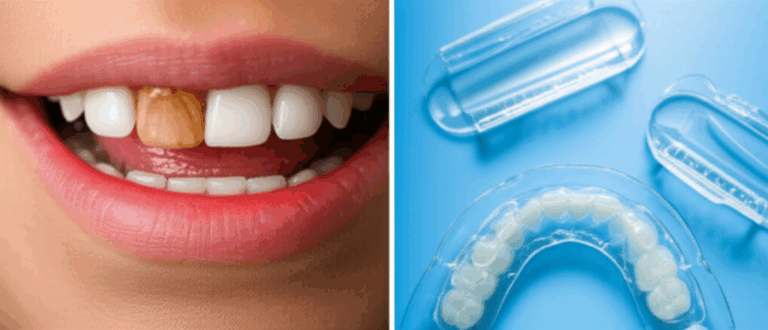
Does the NHS Cover Dental Implants? My Simple Guide for the UK
Table of Contents
- Medical Need: The Key Thing
- Specific Situations
- How the NHS Referral Really Works
- Average Private Implant Prices
- What Can Change the Final Price?
- Payment and Choosing a Dentist
- Dental Bridges
- Dentures (Full and Partial)
- Picking What’s Right for You
1. The Short Answer: Generally, No (But Here’s the Real Story)
If you’re asking if the NHS pays for dental implants, I can tell you from speaking with a lot of dentists—it’s not just a simple yes or no. If you want a quick answer, here it is: most people can’t get dental implants on the NHS. It’s not common.
Why is that? Because the NHS thinks of most dental implants as a cosmetic fix, not something you must have for your health. The NHS is there to help with important health problems. So if you’re just missing a tooth and want an implant to look better, you’ll probably need to pay privately.
But, as with most things, there are some exceptions. Let me break it down.
2. When the NHS Does Cover Dental Implants: Strict Eligibility Rules
I’ve learned the NHS almost never gives dental implants, but in some special cases, you might qualify. It all comes down to medical need, not just wanting a better smile.
Medical Need: The Key Thing
The NHS might pay for dental implants only when not having them seriously messes up your life. That could mean you can’t eat, talk, or live normally without them. If you’re really struggling with your teeth and can’t use normal options, the NHS might see it as important.
Specific Situations
Here are the main times, in my experience and after checking with pros like Dr. Joe Dental, when the NHS might help:
- Born with Dental Problems: Some kids never grow adult teeth because of things like hypodontia. If this is you, and other choices like dentures or bridges don’t work, you might get dental implants on the NHS.
- Bad Face or Teeth Injuries: If you had a big accident or injury and lost teeth, and regular fixes won’t help, the NHS can sometimes provide implants.
- Cancer or Cancer Treatment: If cancer or its treatment makes you lose teeth and you have trouble using other things, the NHS might pay for implants as part of fixing your mouth.
- Cleft Lip and Palate Cases: Fixing a mouth after cleft surgery sometimes needs implants, and the NHS thinks these are very important.
- Other Rare Cases: Some people just can’t wear regular dentures because they gag, have allergies, or have other real problems. If hospital dentists agree there’s no other way, you might get NHS help.
How the NHS Referral Really Works
You can’t get implants at your usual dentist. If you think you fit the strict list above, this usually happens:
So, to sum up, unless you have a special and serious problem, NHS dental implants aren’t available. Most have to go private.
3. Understanding NHS Dental Costs and Bands
If you’re new to UK dental care, NHS work is split into three price bands:
- Band 1 (£26.80): Covers check-ups, X-rays, cleanings, and advice.
- Band 2 (£73.50): Band 1 stuff, plus fillings, root canal, and simple pulling of teeth.
- Band 3 (£319.10): Everything above, plus harder jobs like crowns, bridges, and dentures.
But here’s the thing: dental implants almost never fit into these normal bands. Even if you get NHS implants, it’s done at a hospital, not your high street dentist.
You might pay Band 3 for things like getting teeth out or for temporary dentures, but the implant surgery itself (if NHS pays) isn’t a normal Band charge—it’s special.
A lot of people think they can pay Band 3 and just ask for implants. That’s not true. Implants are a much bigger and pricier treatment.
4. Private Dental Implants: Prices and What to Expect
For almost everyone, if you want implants, you’ll need to pay privately. I’ve helped friends through it—it’s a big cost, but can be really worth it.
Average Private Implant Prices
Prices change a lot, depending on your town, how tricky it is, your dentist’s experience, and extra work you might need. Here’s what I’ve seen:
- Single Dental Implant (with abutment and crown): £2,500 – £4,500 (sometimes more in London)
- Full Arch (like All-on-4): £10,000 – £25,000+ per jaw
- Implant Denture (2-4 implants): £6,000 – £15,000+
- Extra treatments:
- Bone Graft: £500 – £2,500
- Sinus Lift: £1,500 – £3,000
- Tooth Removal: £80 – £300 each
These numbers are right for the UK in 2024 and checked by dentists.
What Can Change the Final Price?
Prices depend on:
- Where You Live: Big city, especially London? It’s almost always more expensive.
- Dentist’s Experience: Expert dentists and implant dental laboratory materials can cost more.
- Materials Used: Top metal or ceramic implants are pricier.
- Extra Surgery: If you need bone added or other work, costs jump fast.
Always ask for a full price list. Don’t be afraid—good clinics know you’ll ask.
Payment and Choosing a Dentist
Implants cost a lot, but you might have choices:
- Paying in Parts: Most clinics let you spread payments, some with no interest for a while.
- Insurance: Some private dental plans pay a little for implants after an accident, but most don’t cover regular tooth loss.
- How to Pick a Dentist:
- Make sure they’re on the GDC register (General Dental Council).
- Check if the clinic works with a top zirconia lab or a trusted crown and bridge lab.
- Read real reviews and ask to see past work.
- Don’t just go for the cheapest—this is something you want to last.
5. Other Choices if You Don’t Get Dental Implants
If implants aren’t possible—because of money, health, or NHS rules—you’ve still got options. I’ve helped family think through these, and every choice has good and bad sides.
Dental Bridges
A bridge uses the teeth next to the gap for support. Bridges can:
- Be on the NHS: Covered under Band 3 (£319.10), much less money than private implants.
- Be private: You get bigger material choices.
- Downsides: The dentist may need to file down good teeth next to the gap. Bridges are fixed, but you lose some healthy tooth.
With the help of a skilled dental ceramics lab, bridges can look and feel real.
Dentures (Full and Partial)
Dentures are old-school but still work well, especially if your jawbone isn’t strong enough for implants.
NHS dentures:
- Partial or full: Given as Band 3 treatment (£319.10).
- Pros: Cheaper, no surgery needed.
- Cons: Removable, sometimes not stable or comfy, might change taste or talking.
Private dentures can be better made and fit well, but are pricier. Some places even offer digital designs from a modern removable denture lab.
Picking What’s Right for You
Think about what you want day-to-day, how you feel about removable teeth, your wallet, and your long-term health. Always chat to your dentist—they’ll help you pick what works for you.
6. Next Steps: What I’d Do
If you’re still reading, you might think, “Okay, so what do I do now?” I’ve walked this road, for myself or others. Here’s my way:
- Talk to Your Dentist First: NHS or private, your usual dentist knows your mouth best. Ask about every option—not just implants.
- Check if You Qualify or Need a Specialist: If you’ve had a big injury, cancer, or were born missing teeth, ask for a hospital referral.
- Get Private Quotes: Visit at least a couple of clinics and get clear price details. Look at what’s included—like is the crown a strong Emax type? Will they scan your mouth in 3D?
- Look at Payment Choices: Check finance plans, grants, or what your insurance might cover.
- Research: Read real patient feedback, see before-and-after pictures, and ask about follow-up care.
- Take Your Time: Implants are a big choice. No rush!
Want to know more or find a dentist? There are helpful resources for dental implant info and specialist clinics.
7. Conclusion: Making Your Way with Dental Implants in the UK
To finish, after years of asking around, reading, and talking to dentists, here’s what I know: Most people in the UK can’t get dental implants on the NHS. They’re only for the really tough cases—big injuries, fixing after cancer, or certain birth conditions.
If you’re in that small group, you’ll need to be patient. There’s a lot of checking and waiting. For most people, private clinics have good answers, though the price is high. Bridges and dentures are good and easier to get through the NHS.
Whatever you pick, get all the facts. Talk to your dentist, ask your questions, and pick what suits your health, smile goals, and your money. A happy smile can change lives, so take your time and don’t be shy to ask for help.
Wishing you all the best with your dental health. If you’re worried or unsure, always speak up to your dentist—no problem is too small. Your peace of mind is worth it.








